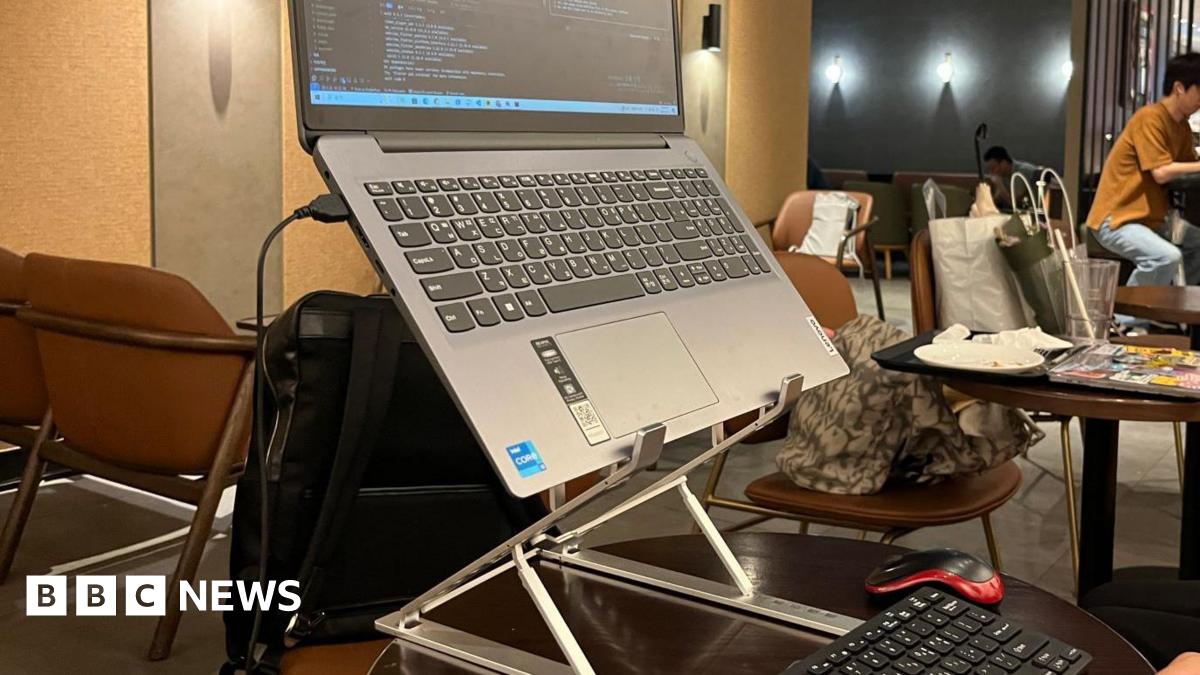South Korea's Cafe Culture: Navigating The Cagongjok Issue

Welcome to your ultimate source for breaking news, trending updates, and in-depth stories from around the world. Whether it's politics, technology, entertainment, sports, or lifestyle, we bring you real-time updates that keep you informed and ahead of the curve.
Our team works tirelessly to ensure you never miss a moment. From the latest developments in global events to the most talked-about topics on social media, our news platform is designed to deliver accurate and timely information, all in one place.
Stay in the know and join thousands of readers who trust us for reliable, up-to-date content. Explore our expertly curated articles and dive deeper into the stories that matter to you. Visit Best Website now and be part of the conversation. Don't miss out on the headlines that shape our world!
Table of Contents
South Korea's Cafe Culture: Navigating the Cagongjok Issue
South Korea boasts a vibrant cafe culture, a ubiquitous presence in its bustling cities and quiet countryside. From independent, aesthetically-pleasing coffee shops to large franchise chains, cafes serve as vital social hubs, study spaces, and even temporary offices. However, beneath the surface of this seemingly idyllic scene lies a complex societal issue: cagongjok (카공족). This term, a portmanteau of "cafe" (카페) and "gongbu" (공부, meaning "study"), refers to individuals who frequently utilize cafes as their primary study or work location. While seemingly innocuous, the rise of cagongjok presents unique challenges for both cafe owners and customers.
The Allure of the Cafe Workspace
The appeal of cafes as workspaces is undeniable. Many offer comfortable seating, readily available Wi-Fi, and a stimulating atmosphere conducive to focus – or at least, the illusion of focus. For students cramming for exams, freelancers needing a change of scenery, or remote workers seeking a professional-yet-relaxed environment, cafes offer a compelling alternative to noisy homes or isolating home offices. This phenomenon isn't unique to South Korea; similar trends are observed globally. However, the densely populated urban landscape and competitive academic environment in South Korea amplify the cagongjok phenomenon.
The Cagongjok Conundrum: A Balancing Act
The cagongjok trend presents a double-edged sword for cafe owners. While these individuals contribute to revenue through extended stays and multiple orders, they also pose potential problems. Long-term occupancy can limit seating availability for paying customers who intend to simply enjoy a coffee and pastry. This can lead to customer dissatisfaction and potentially impact overall business.
Furthermore, the issue of noise and disruptive behavior can be a significant concern. While many cagongjok are respectful and mindful of others, some can be inconsiderate, leading to complaints from other patrons. This delicate balance between accommodating a crucial customer segment and maintaining a positive atmosphere for all presents a significant challenge for cafe management.
Strategies for Navigating the Cagongjok Issue
Many cafes are actively trying to address the cagongjok issue creatively. Some strategies include:
- Time limits: Implementing time limits for table usage, especially during peak hours.
- Minimum order requirements: Encouraging longer stays by requiring a minimum purchase within a specific timeframe.
- Designated workspaces: Creating separate areas specifically designed for studying or working, offering a more focused environment and minimizing disruption to other patrons.
- Cafe membership programs: Rewarding loyal cagongjok customers with benefits while managing occupancy.
- Clear communication: Displaying clear policies regarding table usage and acceptable noise levels.
The Future of Cafes and Cagongjok in South Korea
The relationship between cafes and cagongjok is an evolving one. As the culture continues to adapt, we can expect to see more innovative solutions emerge. The key lies in finding a balance that respects the needs of all customers while ensuring the financial viability and positive atmosphere of South Korean cafes. This requires open communication, understanding, and a willingness to adapt on the part of both cafe owners and cagongjok themselves. The future of South Korea's cafe culture hinges on navigating this complex issue effectively. What strategies do you think are most effective in managing the cagongjok phenomenon? Share your thoughts in the comments below!

Thank you for visiting our website, your trusted source for the latest updates and in-depth coverage on South Korea's Cafe Culture: Navigating The Cagongjok Issue. We're committed to keeping you informed with timely and accurate information to meet your curiosity and needs.
If you have any questions, suggestions, or feedback, we'd love to hear from you. Your insights are valuable to us and help us improve to serve you better. Feel free to reach out through our contact page.
Don't forget to bookmark our website and check back regularly for the latest headlines and trending topics. See you next time, and thank you for being part of our growing community!
Featured Posts
-
 Ryder Cup Mc Ilroys Candid Discussion Street Chats With Donald Hint At European Success
Aug 25, 2025
Ryder Cup Mc Ilroys Candid Discussion Street Chats With Donald Hint At European Success
Aug 25, 2025 -
 Villarreal Vs Girona In Depth Match Preview Team News And Betting Odds
Aug 25, 2025
Villarreal Vs Girona In Depth Match Preview Team News And Betting Odds
Aug 25, 2025 -
 Small Boat Asylum Seekers Farage Promises Swift Deportation
Aug 25, 2025
Small Boat Asylum Seekers Farage Promises Swift Deportation
Aug 25, 2025 -
 Ai Slop And The Music Industry Understanding And Combating Fraudulent Releases
Aug 25, 2025
Ai Slop And The Music Industry Understanding And Combating Fraudulent Releases
Aug 25, 2025 -
 Gronks Stunning Girlfriend Dazzles In A String Bikini
Aug 25, 2025
Gronks Stunning Girlfriend Dazzles In A String Bikini
Aug 25, 2025
Latest Posts
-
 High Stakes Loss Fantasy Sports Bettor Takes Legal Action Against Fan Duel
Aug 25, 2025
High Stakes Loss Fantasy Sports Bettor Takes Legal Action Against Fan Duel
Aug 25, 2025 -
 Nfl Trade Chiefs Land Nnadi Jets Receive Future Draft Pick
Aug 25, 2025
Nfl Trade Chiefs Land Nnadi Jets Receive Future Draft Pick
Aug 25, 2025 -
 Field Of Dreams Game 2026 Mlb Announces Return To Iconic Site
Aug 25, 2025
Field Of Dreams Game 2026 Mlb Announces Return To Iconic Site
Aug 25, 2025 -
 Federal Troops In Dc Pushback Mounts From Us Cities Anticipating Similar Actions
Aug 25, 2025
Federal Troops In Dc Pushback Mounts From Us Cities Anticipating Similar Actions
Aug 25, 2025 -
 Trumps Show Of Force In Washington Dc A Look At The National Security Implications And Public Reaction
Aug 25, 2025
Trumps Show Of Force In Washington Dc A Look At The National Security Implications And Public Reaction
Aug 25, 2025
